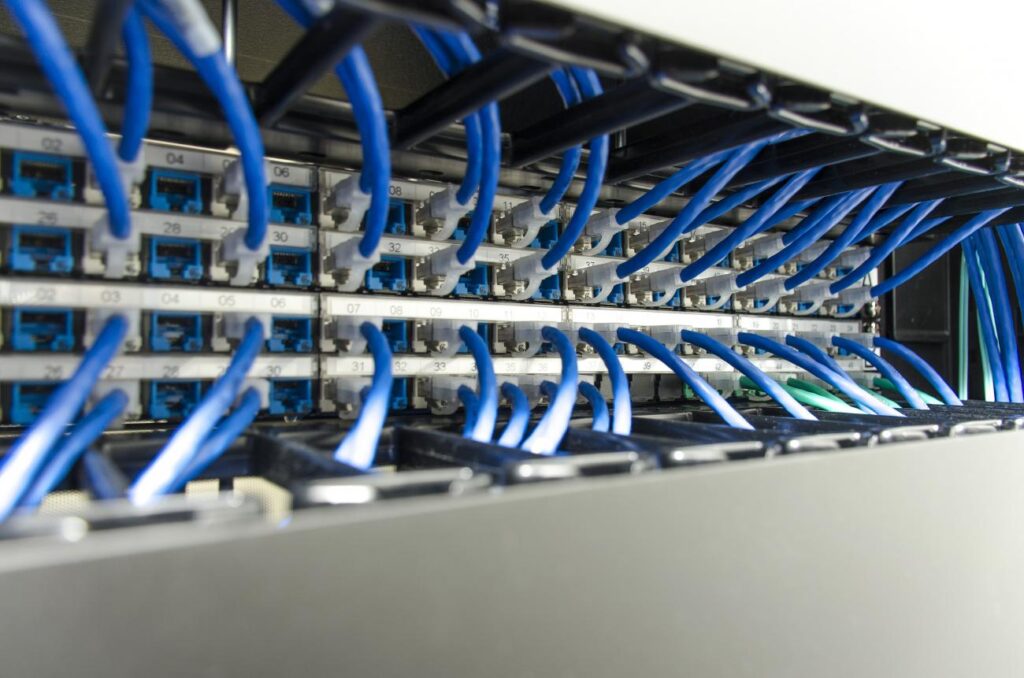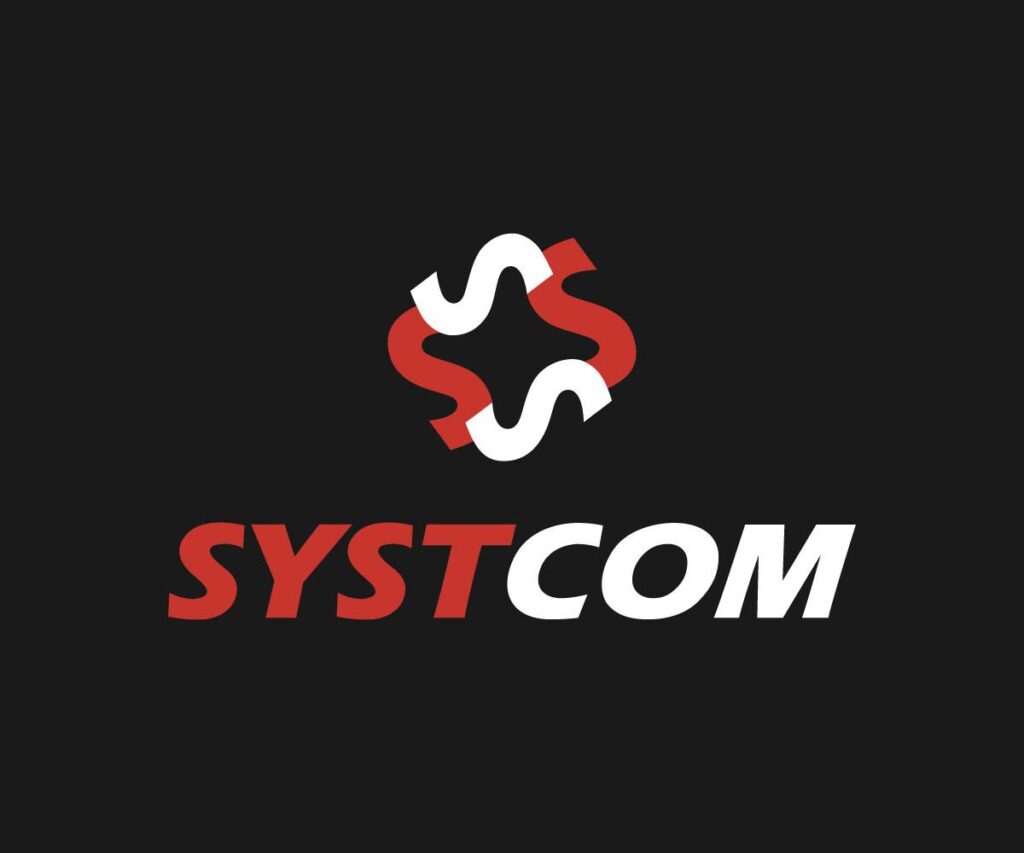When planning or upgrading a network in a commercial space, one of the most important decisions you’ll make is choosing the right type of cabling. For most businesses, that choice comes down to fiber optic cabling vs. copper (Ethernet) cabling.
While both are widely used and effective, they serve different purposes and come with different strengths. Making the right choice can impact your network speed, scalability, installation cost, and future flexibility.
At Systcom, we often speak with business owners, IT managers, and facilities teams who are unsure which path to take. So, in this article, we’ll walk you through the key differences between fiber and copper cabling along with practical considerations that can help guide your decision.
Understanding the Basics
What Is Copper Cabling?
Copper cabling, often referred to as Ethernet cabling, uses electrical signals to transmit data across twisted copper wires. It’s typically categorized by type, such as Cat5e, Cat6, Cat6a, or Cat7, with each supporting different speeds and bandwidth capacities.
Where you’ve seen it:
- Common in office workstations
- Often used for VoIP phones, desktop computers, and security cameras
- Typically supports runs up to 328 feet (100 meters)
Advantages of Copper:
- Lower upfront cost for both materials and labor
- Widely available and easier to install
- Sufficient for most general-purpose office networks
- Easier to repair and replace in some cases
Limitations:
- Limited distance before signal degradation
- Vulnerable to electromagnetic interference (EMI), especially in environments with heavy machinery or wiring
- Lower data transmission speeds compared to fiber
- Not as scalable for high-performance or future technology demands
What Is Fiber Optic Cabling?
Fiber optic cables transmit data using light, not electricity, through strands of glass or plastic fibers. This allows for faster speeds, longer distances, and greater bandwidth without the same signal loss or interference issues found in copper.
Where it’s used:
- Data centers
- Multi-floor or campus environments
- Businesses relying on cloud services, video conferencing, and heavy data transfer
- Future-forward organizations planning to scale up
Advantages of Fiber:
- Can transmit over miles without signal loss
- Immune to electromagnetic interference
- Supports higher bandwidth, allowing for more data at faster speeds
- Often considered more “future-proof” due to its scalability
Limitations:
- Higher upfront installation cost
- Requires specialized installers and tools
- Fiber strands can be more fragile and may need protective conduit or extra care during setup
Cost Isn’t the Only Factor—Think Long Term
It’s tempting to base the decision on price alone. Copper is typically less expensive, but in environments where performance, security, or scalability is critical, fiber may offer a better long-term return on investment.
For example:
- If your business is heavily reliant on cloud-based applications or video conferencing, fiber’s speed and bandwidth can dramatically improve performance.
- If you anticipate significant growth in team size or connected devices, fiber helps you avoid costly upgrades down the road.
- If you operate in a space with high EMI—like industrial buildings or near HVAC systems—fiber can offer better signal reliability.
Which Is Best For Your Business?
There’s no universal answer. Choosing between fiber and copper isn’t just about picking a cable; it’s about designing a network that supports your business operations, keeps you connected, and minimizes downtime.
That’s where Systcom comes in. Our team doesn’t push a one-size-fits-all solution. Instead, we conduct a thorough consultation and site survey to understand your building’s structure, your team’s usage, and your long-term goals.
Whether you’re:
- Moving into a new office space
- Upgrading outdated infrastructure
- Building out a multi-floor or multi-building network
- Integrating AV or security systems
We can help you determine whether fiber, copper, or a hybrid solution is the smartest investment.
Let’s Build the Right Network Together
If you’re building a new commercial building or looking to upgrade your space , Systcom can help. Our experienced team will assess your needs and provide a customized recommendation that fits your goals, timeline, and budget.
Contact us today to schedule a consultation.


